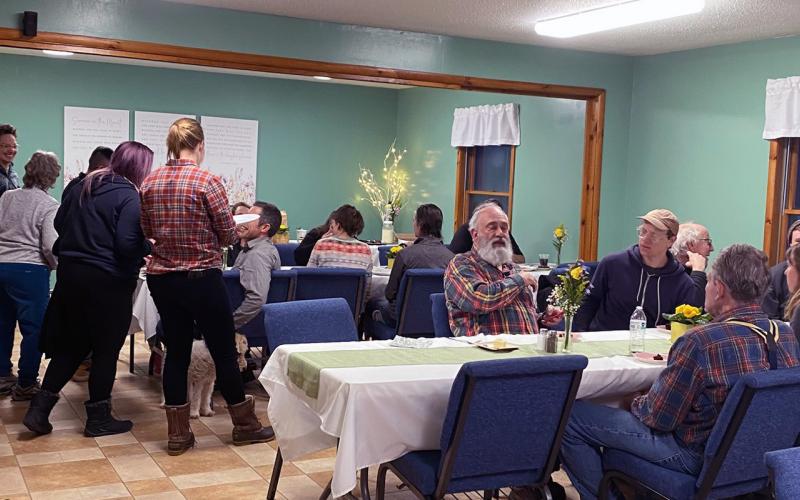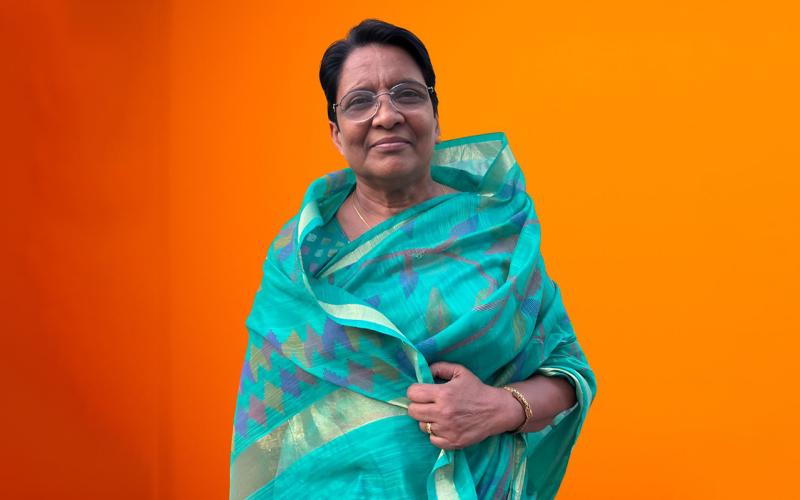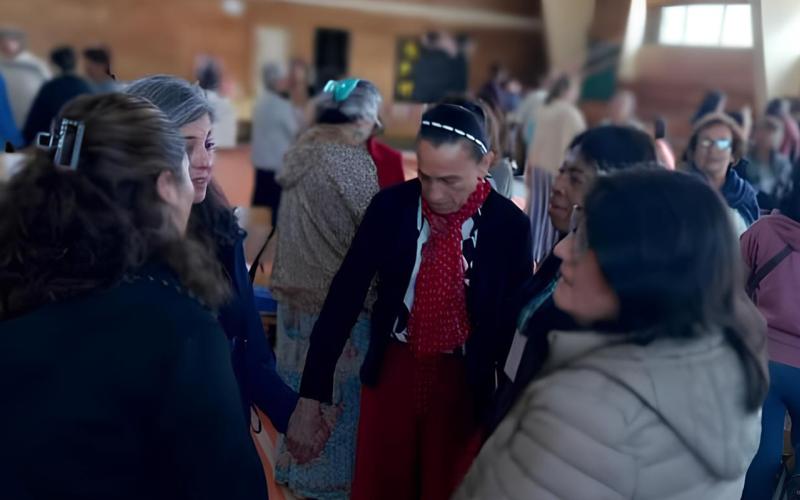
New technology helps teachers in remote areas receive valuable resources

In a global denomination with 2 million members, the Internet is an invaluable resource for connecting people around the world.
Despite all its usefulness, the Internet does have its limitations, and that's just if you can access it. As much as 60 percent of the world's population can't access the Internet.
“There are many places we cannot distribute resources via the Internet — either because of lack of access or security,” said Tammy Condon, administrative director for the Church of the Nazarene’s Global Education and Clergy Development Office.
Enter Library Box: a small, portable router that enables users to download files without an Internet connection or wires of any kind.
“It’s super easy technology, which, when we think about some of the places it needs to go, that’s exactly what we need,” Condon said.
Users within a few feet can connect to the iPhone-sized device just like you would connect to a WiFi router. The device will then redirect the user from any Web page to a Library Box page where files can be viewed and downloaded.
The GECD staff is currently focused on educational applications, such as allowing students to download reading material or homework, but the potential uses don’t end there.
“It’s helpful for any place that you want to update a whole class of people at once without having to trade flash drives back and forth,” said Stephen Jones, a member of the Information Technology team at the denomination’s Global Ministry Center.
I.T. personnel are assisting the GECD office with several modifications, including wiping out the original firmware to increase the maximum number of simultaneous users and devices from five to 16.
Condon is grateful for the I.T. team’s help.
“The way they’re helping our department is so huge,” Condon said. “They’re trying to bring the best of what’s out there to the creative edge of mission.”
The technology behind Library Box started as an offline, anonymous file sharing network. Because the software behind the device is open source, it can be modified to meet a variety of needs.
“We’ve been able to make good use of it,” Jones said. “It’s great to see how this can benefit missionaries and others on the field.“
The device has several security features that make it useful for missionaries and others serving in sensitive world areas.
Because the Library Box simply references the files through an attached flash drive, the device itself is empty and non-functioning when they are separated.
“It’s an extremely interesting piece of technology,” Condon said. “Once you turn off the device, it doesn’t leave cookies or other evidence of a transfer on your computer.”
Thanks to the device’s range, file transfers can be initiated in a public place such as a coffee shop without any contact between the content giver and receiver.
“I think the possibilities for its use are tremendous, and not just in areas of the world where we have to be careful how we communicate and transfer information,” said Scott Stargel, director of Global Nazarene Publications.
Stargel recently conducted the device’s first field test in Africa.
“The Library Box worked very well,” Stargel said. “All our participants were able to connect to it, upload and download files. It fits in my shirt pocket, and the battery lasted about five hours.”
Library Box made its official debut at a field strategy coordinators’ meeting in September. Over the next six months, pastors and leaders are encouraged to submit proposals through the regional education coordinators about uses for the device.

In addition to the boxes, GECD is also distributing 500 tablets that were recently donated by two anonymous donors.
Each tablet comes with a micro SD card filled with ordination, lifelong learning, and other church resources from the Wesleyan-Holiness Digital Library. The tablets can be set up in a number of languages, and WHDL resources are available in 58 languages.
Current tablet distribution is targeted to teachers who work away from their school’s main campus, often in locations without Internet. These extension centers allow educators to reach students in remote areas who cannot travel to the main campus.
“Our hope is that this will just be the beginning of the donation of tablets, either from this donor or other donors, because this is a valuable way to distribute resources,” Condon said. “Ultimately, we have a request for all of the students of schools to get tablets. The need is huge.”
Many of the educators receiving tablets are also pastors.
“The idea is that for pastors who don’t have a computer, this can function as a computer so that they can write reports and such,” Condon said. “It has a camera so they can write reports with pictures.”
Frank Moore, general editor for the Church of the Nazarene, gave the new resources rave reviews.
“Words fail me in describing how excited I am about both the Library Box and tablet initiatives,” Moore said. “I spent three decades in a university classroom and often taught courses on remote mission fields. I would have given anything to have had these resources available for my students!
“God has blessed us richly in providing us with these tools. I am so thankful that the Global Ministry Center can partner with pastors and teachers around the world to assist them in spreading the gospel message.”



